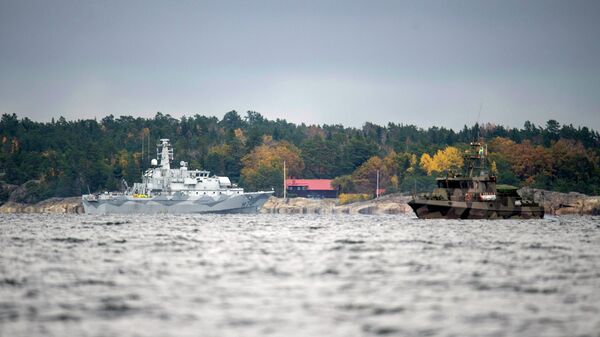Rear Admiral Anders Grenstad told the newspaper Dagens Nyheter on Sunday that as a consequence of the inquiry, the evaluation of the reported seacraft on the six-level scale of observation had been changed from a "Class Two, possible submarine, to Class Five, non- submarine."
Please update your #RussianSubmarineInSwedishWaters files, as we did http://t.co/2p6Rn3cJRi & https://t.co/Hu0VdvsHP4 pic.twitter.com/XfM38LLnkk
— MFA Russia (@mfa_russia) April 13, 2015
Instead of a Russian submarine, which according to fevered speculation had run into trouble on a spy mission in Swedish waters, the investigators found that the vessel is question had in fact been a local work boat called the "Time Bandit," measuring ten meters in length and three meters wide.
Despite the findings, Sven Olof Kviman, the retired naval officer who originally reported the sighting, told the press he was sticking to his guns regarding the sighting: "I saw the submarine above water," he said. "It is always difficult to determine the size, but it was around 20-30 meters long," protested Kviman.
Russian authorities have repeatedly dismissed the speculation that a Russian submarine had been in the area, remarking that the vessel in question was more likely to be a Dutch naval submarine which had conducted naval operations with the Swedish navy in the Baltic Sea earlier in the week. The Dutch authorities likewise announced that the 'submarine' did not belong to their forces.
On October 24, as the search for the mystery vessel ended, Russian Defense Ministry Spokesman Igor Konashenkov, commenting on the reports and the Swedish military operations, said that the Swedish authorities should be more careful with their presumptions.
"Such operations from the Swedish military authorities, not based on any evidence, and fired up with the rhetoric of the Cold War, today only lead to the escalation of tensions in the region."
"In connection with the continual speculation from the Swedish side about the discovery of a 'Russian submarine,' we look forward to the culmination of this gripping operation," said Konashenkov.
On March 12 Swedish Defense Minister Peter Hultqvist announced that he had negotiated an increase of six billion kronor [$676 million] from the Finance Ministry in the wake of the unsuccessful submarine search, to boost Sweden's defenses between 2016 and 2020.
"Submarine hunting is a priority. We've had incidents showing that it is very important to have an increased capacity for anti-submarine warfare," Hultqvist told the Swedish Svenska Dagbladet newspaper, justifying the increase.
"We must do what we can to maintain and develop our skills. It is very important to protect Sweden's sovereignty."
According to Sverigesradio, the figure of 6 billion represents a compromise between the 16 billion demanded by the armed forces, and the 2 billion originally offered by the Finance Ministry. In addition, the defense budget will receive 1.2 billion kronor which had previously been intended to fund international peacekeeping efforts.




